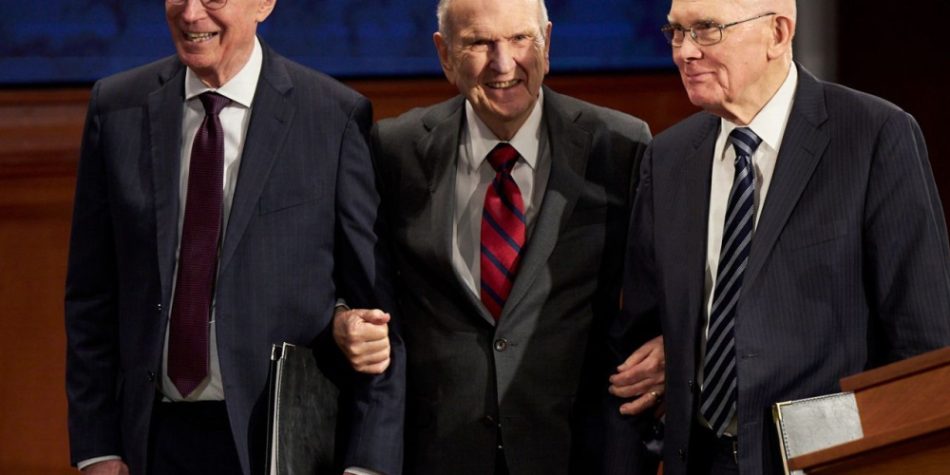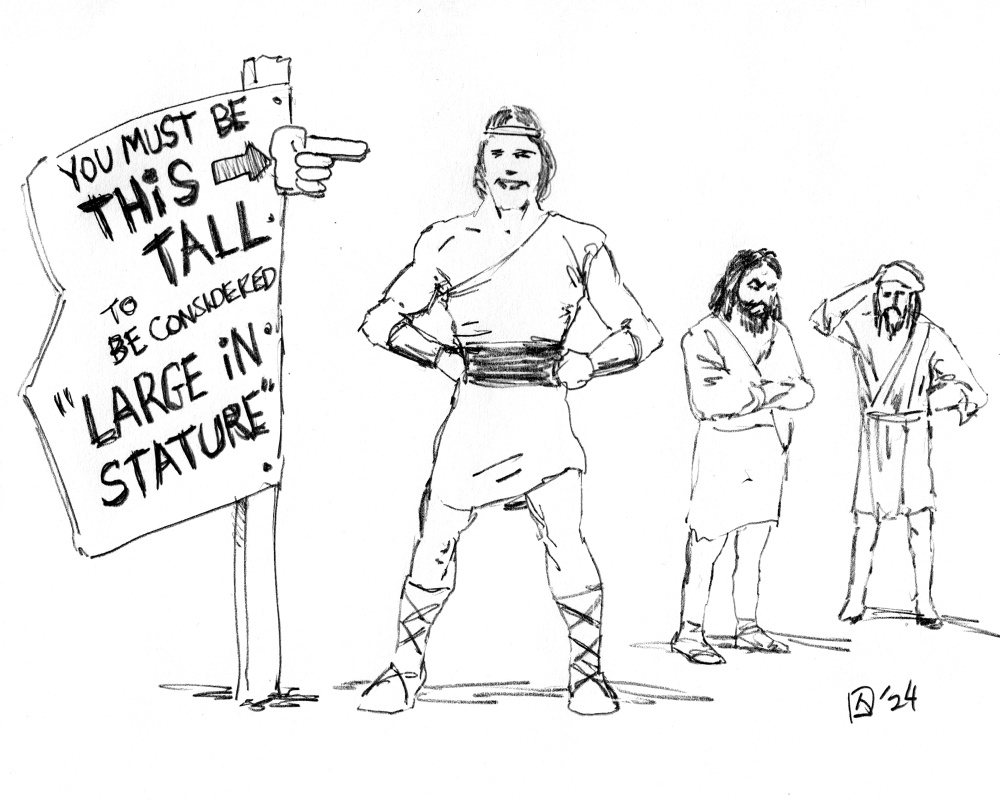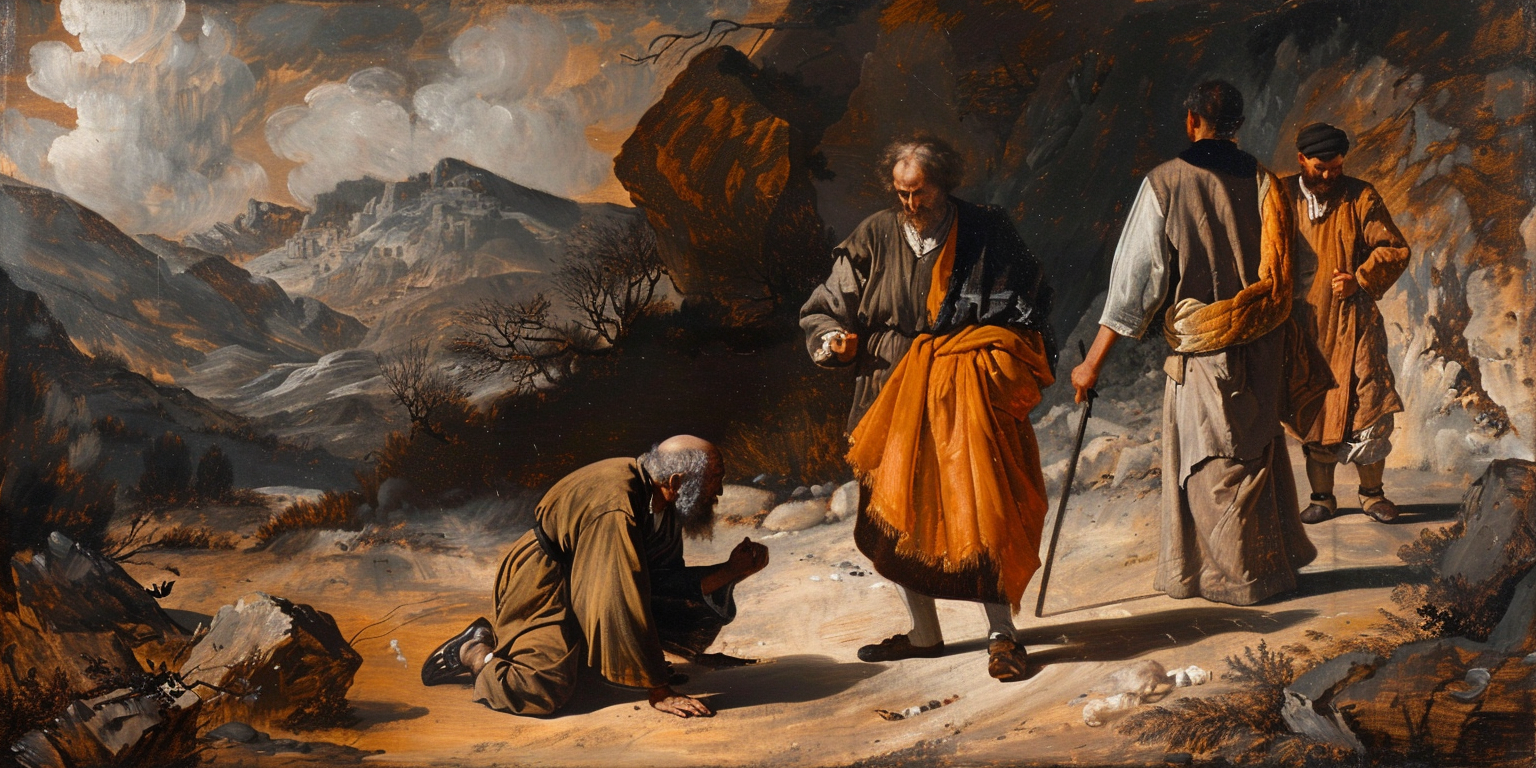Public Square Magazine’s staff and friends were grateful for the opportunity to hear from the leaders of The Church of Jesus Christ of Latter-day Saints. Below are the messages and themes that stood out to us.
Power of Patriarchal Blessings
Pam Peebles
The talk given by Elder Kazuhiko Yamashita immediately stood out to me on Sunday morning. It was so personal to my life and experience with patriarchal blessings.
I was born with a rarer type of blood. When I was a teenager, I had emergency surgery. The surgery went fine; however, I started developing a number of symptoms. I had developed a bacterial infection from improper sanitation of the surgical tools. If it entered my bloodstream, I could die, and my blood type made a transfusion difficult. But with antibiotics, it cleared in three weeks.
A few months later, I was to receive my patriarchal blessing because I felt I was the right age. During the blessing, the patriarch said, “I will bless you with health and strength, with joy and happiness that your bloodstream will run clear and pure and will not become infected with anything that would tear down your health and your beautiful body.”
The patriarch could not have known anything about my recent health scare. I was touched by Elder Yamashita’s counsel that because patriarchal blessings are eternal, promises not fulfilled in this life will be granted in the next. And that our preparation will increase our faith in Heavenly Father and Jesus Christ.
A Worldwide Church
Jacob Ross
One thing that was strongly impressed on me during the Saturday morning session is that The Church of Jesus Christ of Latter-day Saints is a worldwide church. I already knew that of course—I served my mission in Indonesia. And I’ve known for a long time that there are more members outside the US than inside. But something about that session, the international Tabernacle Choir members, the stories Elder Gong shared about saints from different countries and the fact that there are 850,000 members in the Philippines (about 1/20 of the Church membership). It just hit me differently this time. This isn’t the church from Utah we’re taking to other countries; this is a thriving, worldwide organization of people who are all united under a single banner, a single name. And I really felt that today—that I was one of many, many people in the world who are united in heart and mind for the purpose of Christ. I feel privileged and grateful to be part of something (THE something) where we are united together and share one vision, no matter where we are in the world.
The “How” Matters
C.D. Cunningham
This conference was replete with talks urging us to keep the commandments. And even encouraging us not to advocate against the commandments.
But even as we continue to stand as witnesses, we must do so with civility. President Russell M. Nelson’s remarks at the end of the Sunday morning session informed nearly every other remark of the conference. Yes, we must stand up for the truths we are taught, but we must do so with kindness. We must “disagree without being disagreeable,” as Elder Rasband reminded us.
We will be identifiable as disciples of Christ, not because we advocate for the truth, but in how we do so.
An Invitation to Peacemaking
Benjamin Pacini
We are called to be peacemakers. We are called to unify—not by merely being nice or avoiding saying mean things, but by coming unto Christ and bowing to the ultimate authority of God.
I typically try to avoid triumphalism, and we need to recognize, I think, that President Nelson’s plea was part rebuke—but it was also part invitation. We have the opportunity to be an answer to prayers—to be a solution to the times of fury and rage and contention that we live in. As the followers of Jesus, we have obligations to speak up in kind ways, to model how a disciple is “in the world but not of the world,” and to speak the truth in kindness. There are many who yearn for a world filled with peace and decency, and kindness. We are not perfect, and we have plenty of work to do—but we are invited to be the spiritual leaven in the dough that raises the whole loaf.
The Words We Need Most
Carol Rice
I have always anticipated hearing from President Oaks—his clarity resonates with me and cuts through noisy static; I dearly appreciate him. Yesterday, as he spoke, reciting line after line of scripture, eager listening gave way to distracting curiosity as I tried to figure out the “point” he was making. Eventually, I just gave in and listened. As I did so, I imagined the Lord standing there at the pulpit saying those words Himself, almost as if He was there, and I wondered, “Do I hear Him?” I doubt there is a social issue or private pain that wasn’t specifically addressed by the perfect lines President Oaks selected and shared. I look forward to examining that more. We must stand up for the truths we are taught.
I get so excited for conference—ready to cling to every word. President Oaks has reminded me that I don’t have to wait six more months—the words I need most are available every day, every hour, right in the palm of my hand.
Peace through Unity
Daniel Frost
In his classic book The Crisis of Democratic Theory, Edward Purcell gives a riveting (to this reader, at least) account of how intellectuals in the United States attempted to affirm ideals like freedom and equality without taking a firm stance on the existence of values. Purcell writes that by the early 1900s, moral relativism was the standard view in many universities. The horrors of World War II required many academics to rethink moral relativism—was there really no moral difference between the United States and Nazi Germany?
The answer, according to Purcell, was the “relativist theory of democracy”—the idea that America was morally good because it was committed to values such as tolerance, openness, and freedom. These “relativist” values, strangely enough, suggest that being too strongly committed to values is a problem. They seek to avoid judgment and thus did not threaten the scientific naturalism that was so prevalent in academic thought. It is only virtue that can overcome contention.
The relativist theory of democracy suggests that tolerance and non-judgmentalism will lead to social harmony (or at least a lack of overt conflict). But this is a limited solution, at best. Interpersonal contention will always be with us as long as our hearts are turned away from the truth. As Elder Christofferson said, “By putting on Christ, it becomes possible either to resolve or to lay aside differences, disagreements, and disputes.” It is only virtue that can overcome contention and lead us to a unity that is more than conformity or avoidance. Virtue sets us free from the lower tendencies of our nature and allows us to connect with others for who they really are—children of God, our brothers and sisters. There is no shortcut to personal and interpersonal peace and harmony.

















